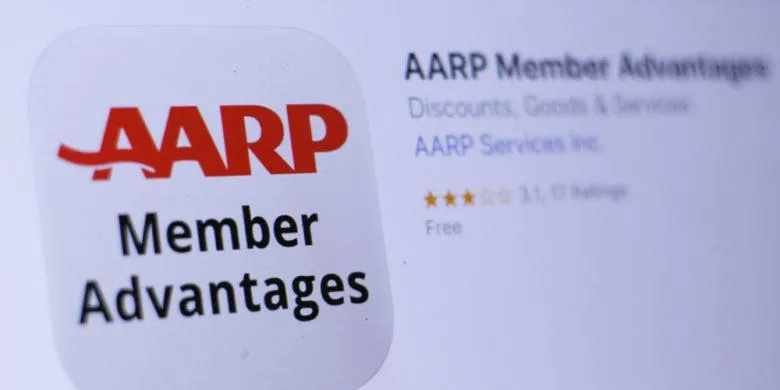
AARP Life Insurance: What You Should Know
Established back in 1958, the AARP life insurance program has a long history of serving individuals over the age of 50. However, just because it's targeted towards older adults doesn't mean it's not suitable for those under 50. In this article, we'll delve into AARP life insurance reviews to help you make an informed decision.
Before committing to any insurance provider, it's wise to explore their offerings thoroughly. Our comprehensive AARP Life Insurance Review aims to provide you with all the necessary information to make an informed decision.
So, what sets AARP final expense insurance apart from the competition? We'll delve into the details to uncover the unique features and benefits of AARP burial insurance.
As you navigate through our AARP life insurance ratings, you'll find insights into how it compares to other providers. Armed with this knowledge, you'll be better equipped to decide if AARP life insurance is the right choice for you.
AARP Life Insurance: An Overview
AARP, also known as the American Association of Retired Persons, is an advocacy group that addresses the challenges and concerns of older Americans, particularly those aged 50 and above, across the United States.
Founded with the mission to support and empower older adults, AARP offers a range of services and benefits tailored to the needs of its members. One such service is AARP Life Insurance, designed to provide financial protection and peace of mind to individuals and their families.
With a focus on serving the unique needs of older Americans, AARP Life Insurance offers various insurance products tailored to different life stages and circumstances. From final expense coverage to term life insurance options, AARP aims to provide affordable and comprehensive coverage to its members.
As a trusted advocate for older adults, AARP Life Insurance is committed to providing reliable and accessible insurance solutions that meet the evolving needs of its members. With a strong emphasis on customer satisfaction and support, AARP strives to ensure that its members have the resources and support they need to navigate life's uncertainties with confidence.
Is AARP an Insurance Provider?
AARP, or the American Association of Retired Persons, is not a life insurance company itself, but rather an organization that offers various services and benefits to older adults. It has several affiliated organizations, including the AARP Foundation, AARP Services, Inc., Legal Counsel for the Elderly, AARP Financial Services Corporation, and AARP Insurance Plan.
While AARP does not directly underwrite insurance policies, it collaborates with insurance providers to offer insurance products to its members. One such collaboration is with New York Life Insurance Company, which administers the state-mandated AARP life insurance program.
Through this program, AARP members have access to a range of life insurance options, including term and permanent insurance. These policies typically feature streamlined underwriting processes, making it easier for members to obtain coverage.
Overall, while AARP itself is not a life insurance company, it partners with reputable insurers like New York Life to offer insurance solutions tailored to the needs of older adults.
Does AARP Offer Burial Insurance with No Waiting Period?
Yes, AARP burial insurance typically does not come with a waiting period. This means that applicants do not have to go through a waiting period after obtaining coverage before their benefits become effective. Instead, acceptance for coverage is based on applicants' health status and personal information, eliminating the need for a physical examination.
AARP Life Insurance aims to empower individuals to make choices about their lifestyle as they age. With offices in all 50 states and over 38 million registered members, AARP serves individuals aged 50 and older, providing various services and benefits tailored to their needs.
Is AARP a Suitable Choice for My Parents' Final Expense Insurance?
As an adult child seeking the best final expense insurance for your parents, you might wonder if AARP is the right option. It's crucial to carefully consider your choices before purchasing AARP life insurance.
Many policies offered by AARP may have terms that expire at age 80, which could pose challenges if your parents are older or facing health issues. Discovering that a life insurance policy has expired when you take over paperwork for your parents can be a difficult realization, leaving them uninsured. To avoid such situations, it's essential to choose a product that provides lifelong coverage.
If you're unsure, contacting AARP New York Life Insurance at (800) 850-2658 can provide you with more information and clarity regarding their offerings. Opting for a quality product ensures that your parents' life insurance policy remains in effect indefinitely, providing them with the coverage they need.
Is New York Life Associated with AARP?
New York Life holds an A++ financial strength rating from A.M. Best, indicating its strong standing in the insurance industry.
The AARP Life Insurance Program is exclusively tailored for AARP members and is underwritten by New York Life, with endorsement from AARP.
Through this program, seniors facing challenges in obtaining life insurance due to pre-existing medical conditions can secure coverage.
AARP New York Life Insurance offers both term and permanent insurance policies, both of which utilize simplified underwriting processes that require minimal medical records.
"Caution: AARP Life Insurance May Lead to Overpayment"
Compared to Level Simple Plans, AARP life insurance could potentially result in overpayment of up to 30%.
Applicants do not have to undergo a medical exam for approval, unless they have a severe medical condition or health impairment.
Seniors with health challenges have the option of lifetime acceptance guarantee through AARP.
Keep in mind that even if you initially believed you were only eligible for a guaranteed issue program, you may qualify for day one coverage with an A+ rated level benefit carrier such as Mutual of Omaha, Royal Arcanum, or AETNA.
This New York life insurance policy does not require medical inquiries and offers automatic approval for applicants.
Furthermore, you have the option to designate funeral homes as beneficiaries, making it an excellent choice for funeral homes and ideal for cremation insurance plans.
AARP New York Life Insurance Plans
AARP New York Life Insurance Plans
The AARP New York Life Insurance plans are structured based on the group life insurance rates offered by the New York Life group division.
AARP offers a range of life insurance plans with varying rates depending on the chosen plan. These plans encompass burial insurance, whole life insurance coverage for children, and group term and whole life insurance policies for seniors.
All AARP life insurance products fall into the categories of guaranteed acceptance or simplified issue whole life insurance, eliminating the need for medical exams and providing immediate coverage.
This is particularly beneficial for seniors with uncontrolled diabetes seeking burial insurance.
In the following section, we'll outline the four main AARP life insurance policies along with their key features and representative pricing.
AARP Level Benefit Term Life
AARP Whole Life
AARP Guaranteed Acceptance Life
AARP Young Start Program
Life Insurance Quotes For Seniors
These are some examples of AARP life insurance rates for term, whole life, and guaranteed insurance. They are contrasted with one another.
We'll utilise life insurance samples for $25,000 and $15,000.
Remember that your rates will rise every five years.
AARP Life Insurance Rates
$25,000 (Term/Whole Life) $15,000 Guaranteed Acceptance

Now Compare AARP to Competitors
Top Life Insurance Rates for $25,000 (Term/WholeLife) $15,000 Guaranteed

Term Life Insurance
AARP's Level Benefit Term Life insurance, also referred to as AARP Term Life Insurance, offers enrollment without the need for a medical examination. Eligibility is determined based on responses to basic health-related questions.
In comparison to level simple issue life insurance providers like Mutual of Omaha, which adjust premiums based on age and offer coverage amounts up to $100,000, AARP Term Life Insurance tends to have higher premium rates.
Typically available for individuals aged 50 to 75, with coverage extending until age 80, these final expense life insurance plans may still provide death benefits beyond that age.
However, AARP term life insurance may not be the most economical option for seniors, especially those in good health. The premiums are relatively high and increase with age, with adjustments made every five years. Consequently, individuals at this stage of life may find other products more suitable for their needs.
Whole Life Insurance For Seniors
AARP Whole Life Insurance, much like AARP Term Life Insurance, boasts no waiting period, no medical exam, and acceptance is contingent upon answering a series of health questions.
However, the maximum coverage provided by AARP Whole Life insurance is capped at $50,000, with premiums being relatively high.
For residents of New York seeking more affordable simplified whole life insurance options, there are certainly better alternatives available. Feel free to reach out to us if you reside in New York and require assistance in finding suitable coverage.
Does AARP life insurance offer cash value benefits?
Unlike Term Life Insurance, AARP Whole Life insurance policies accrue cash values, and premiums remain level until the beneficiary reaches the age of 95.
While reaching the age of 95 is uncommon, whole life insurance providers typically do not allow policyholders to cease premium payments while maintaining coverage.
This plan is particularly beneficial for seniors, designed to assist those who require funds to settle minor debts and cover funeral expenses.
Over time, the policy accumulates cash value, providing a financial safety net for unexpected emergency expenses.
It's a wise choice for individuals with pre-existing medical conditions.
AARP Whole Life Insurance includes two additional riders that offer financial assistance in the event of incapacity or illness.
WAIVER OF PREMIUM: If you are required to reside in a nursing home due to disability or illness (or until you turn 80, whichever comes first), you will be relieved of premium payments for the duration of your stay. However, premium payments will not cease until you have been in a nursing home for at least six months.
ACCELERATED DEATH BENEFIT: Individuals diagnosed with a terminal illness and given less than 12 months to live may access up to 50% of the death benefit while still alive.
It's important to note that AARP is utilized as a marketing tool by New York Life Insurance Company, and some products have an expiration age of 80. Exercise caution!
Guaranteed Acceptance Insurance
Individuals aged 50 to 80 have the option to purchase the AARP Guaranteed Acceptance Life Insurance Plan.
This plan requires no medical examination or inquiries about pre-existing health conditions, making it an ideal choice for those seeking coverage to handle final expenses for elderly parents.
While AARP New York Life Insurance can be costly, it offers coverage of up to $25,000 at maximum.
Additionally, the plan accrues cash value, with level cash insurance payments continuing until the insured reaches the age of 95.
However, if the insured passes away within the first two years of coverage due to a cause other than an accident, the beneficiary will not receive the full death benefit. Instead, they will receive 125% of the premiums paid to date.
Although insurance companies typically impose waiting periods for guaranteed acceptance coverage to mitigate significant payouts for terminally ill individuals, AARP's permanent life insurance options may not be cost-effective for seniors.
If you have previously experienced a serious medical issue, this plan may still be your best option.
Young Start Program
Young Start Program
AARP's Young Start Program provides the opportunity to obtain whole life insurance for children or grandchildren under the age of 18.
Similar to previous plans, no medical examinations are required for acceptance, as eligibility is determined by a series of general health-related questions. Additionally, the policy accrues cash value over time.
The Young Start Program offers three levels of coverage with monthly premiums of $5, $7.50, and $10.00, providing death benefits of $10,000, $15,000, and $20,000, respectively.
Designed to protect parents and family members from the financial burden of an untimely death in a child, this plan ensures coverage until the child reaches the age of 21, with the insurance cost remaining consistent throughout.
As the policy's cash value gradually increases over time, it can serve as a valuable asset that can be accessed when needed by the child or grandchild.
Furthermore, after the child turns 21, they are not required to pay life insurance premiums to maintain coverage following the guardian's passing. Instead, premium payments are determined based on the original coverage purchase.
For those seeking modest coverage for a younger family member, AARP's Young Start Program offers excellent value and peace of mind. It serves as a reliable option to assist parents with funeral expenses in the unfortunate event of a child's premature passing.
Additionally, this plan provides an opportunity for saving for retirement. AARP membership, which costs between $12 and $16 per year, includes numerous benefits, such as exclusive discounts.
If you're a senior in need of assistance, don't hesitate to reach out.
Conclusion
AARP, a renowned organization, addresses various challenges encountered by older adults. Additionally, it serves as a York life insurance firm!
After reading this article, you should possess adequate information to determine whether this life insurance strategy is suitable for you and your family.
To proceed, simply input some basic details into our quote generator tool located at the top of this page. Provide information such as the desired coverage amount and the intended beneficiary in the event of your passing, and we'll handle the rest.
So, why delay any further? Obtain a free quote right away!
Evaluate quotes from leading insurance providers
Compare quotes from top insurance carriers
Best Plan For Me
Qualified Health Impairments
This site provides life insurance information and quotes. Each rate shown is a quote based on information provided by the carrier. No portion of BestBurialPolicy.com may be copied, published or distributed in any manner for any purpose without prior written authorization of the owner.




